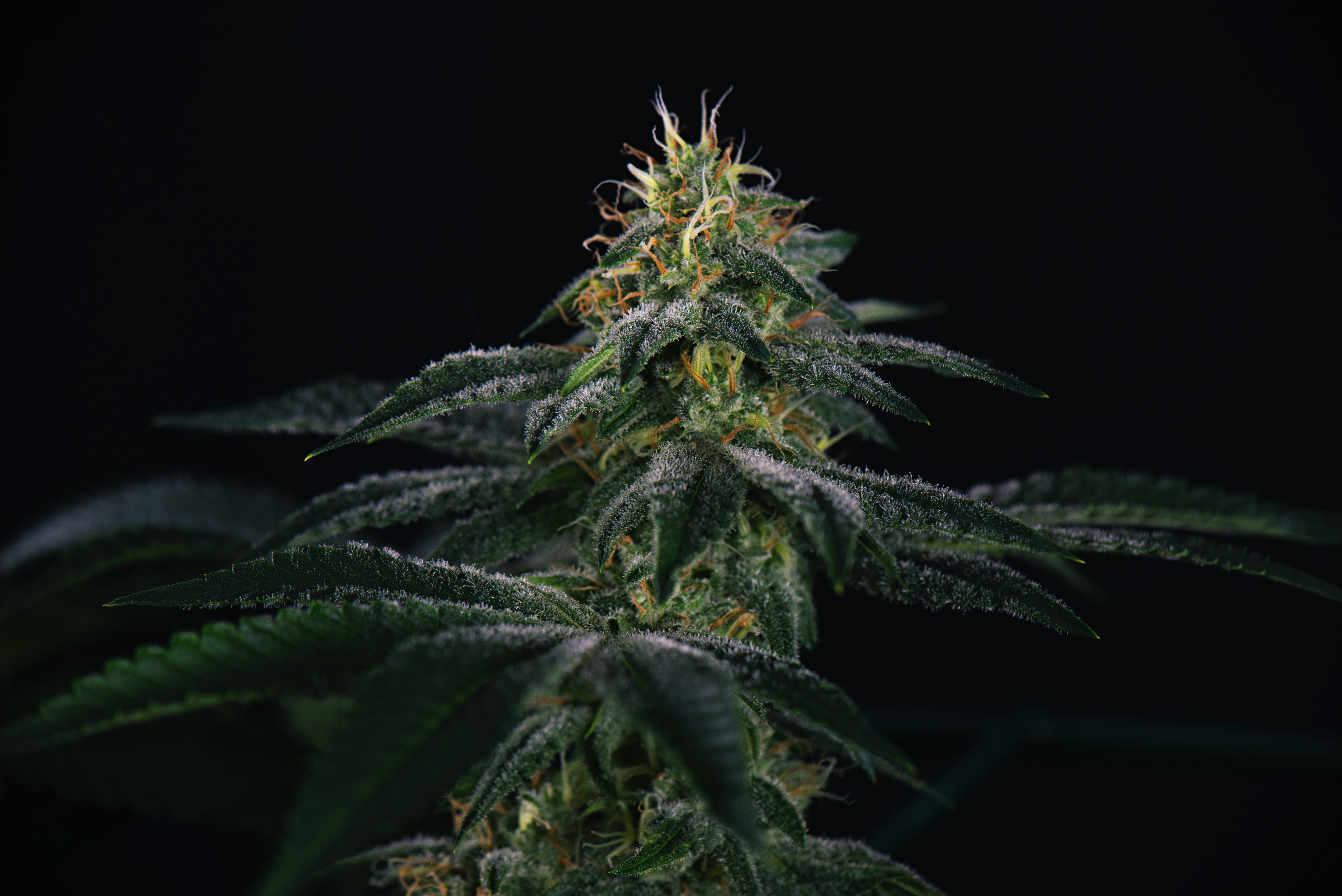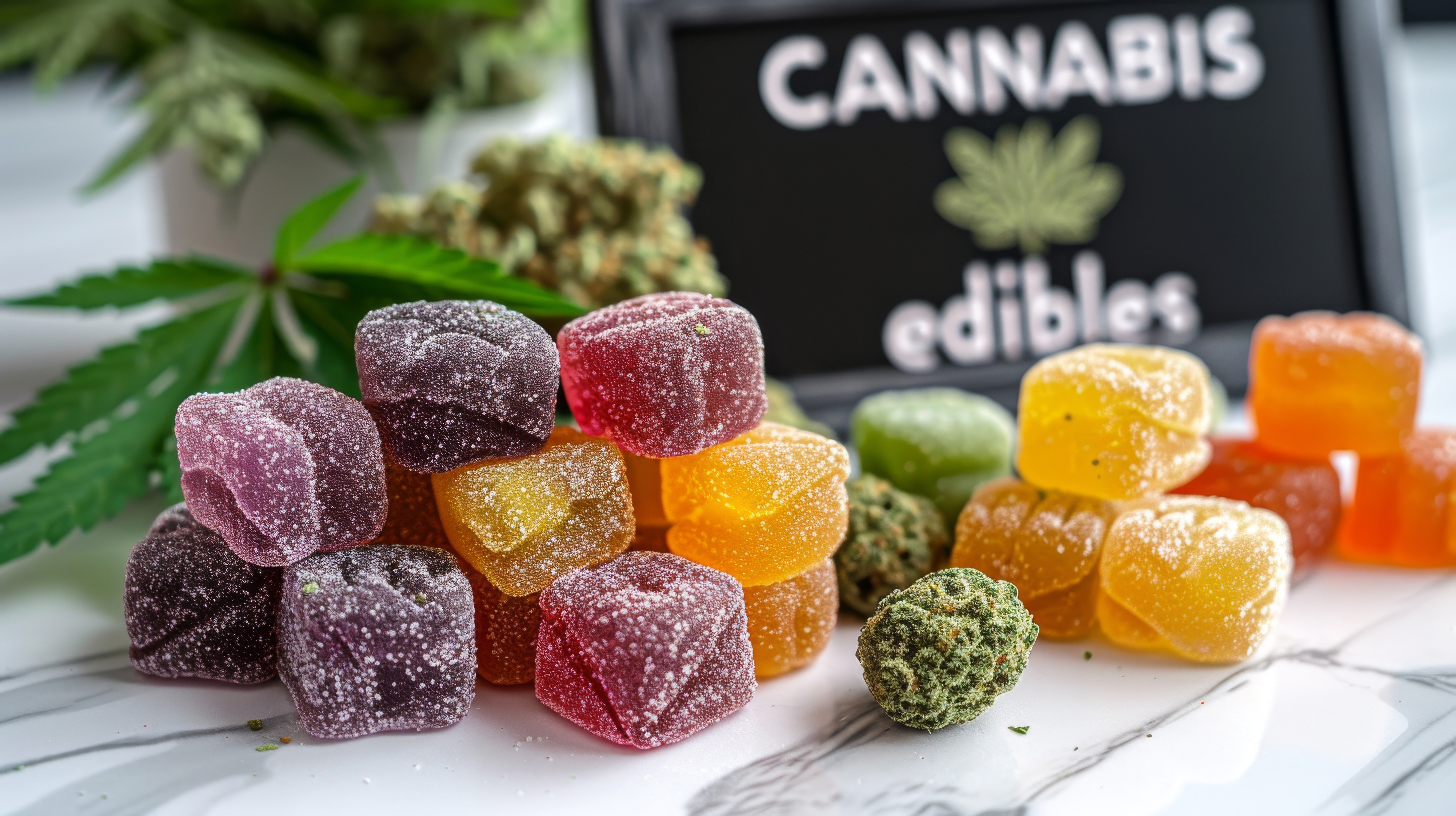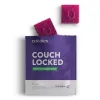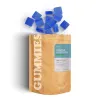THC is the most well-known compound found in cannabis, responsible for the plant's psychoactive effects.
With the increasing popularity of cannabis and hemp products, understanding the different types of THC is essential. But THC isn't just one specific compound, it includes a whole family of tetrahydrocannabinols found in cannabis.
The best-known among these are delta 8 products, delta 9 products, and delta 10 products. But what are the differences and similarities between these compounds? Aren't they all just THC? Learn everything you need to know about these products here!
Understanding THC
THC, or tetrahydrocannabinol, is a cannabinoid, a type of compound found in the cannabis plant. It is primarily known for its psychoactive properties, which produce the "high" associated with cannabis use.
THC interacts with the body's endocannabinoid system (ECS), a complex cell-signaling system that plays a role in regulating various physiological processes, including mood, appetite, pain, and sleep.
The ECS consists of endocannabinoids (cannabinoids produced by the body), receptors (CB1 and CB2), and enzymes that synthesize and degrade endocannabinoids.
THC binds predominantly to CB1 receptors in the brain and central nervous system, resulting in its psychoactive effects.
THC has been the subject of extensive research since its isolation and identification in the 1960s.
Early studies focused on understanding its psychoactive properties, while more recent research has explored its potential therapeutic applications, including pain relief, appetite stimulation, and anti-inflammatory effects.

What is Delta 8 THC?
Delta 8 is a minor cannabinoid found in the cannabis plant. Its chemical structure is similar to delta 9, with a slight difference in the location of a double bond in the carbon chain.
This subtle variation influences its interaction with the endocannabinoid system and its effects on the body.
Delta 8 has a double bond on the eighth carbon chain, whereas delta 9 has it on the ninth carbon chain.
This difference, though minor, impacts how the compound interacts with cannabinoid receptors in the body.
Psychoactive Properties and Effects
Delta 8 is psychoactive but less potent than delta 9. Users often describe its effects as more clear-headed and less anxiety-inducing than delta 9, earning it the nickname of “delta 9’s nicer younger sibling.”
This means that delta 8 gummies, for example, offer a milder high, which can be beneficial for individuals who find delta 9 too intense.
Delta 8 is said to deliver an indica-like high, leaving you mellowed out and relaxed, ready to enjoy a chill night in, play some board games, watch a movie, and go to bed.

What is Delta 9?
Delta 9 is the most well-known and abundant form of THC found in cannabis. It is the primary psychoactive component responsible for the "high" associated with marijuana use.
Delta 9 has a double bond on the ninth carbon chain.
This structure allows it to bind effectively with CB1 receptors in the brain, producing strong psychoactive effects.
Psychoactive Properties and Effects
Delta 9 is highly psychoactive, leading to euphoria, altered perception of time, and increased sensory awareness.
It can also induce side effects such as anxiety, paranoia, and impaired memory, particularly at higher doses.
Delta 9 is the most famous compound in cannabis, apart from perhaps CBD. It’s responsible for all of cannabis’s classic effects that get users stoned. This means that delta 9 gummies offer the typical highs you hear of when discussing cannabis use.

What is Delta 10 THC?
Delta 10 is a lesser-known cannabinoid that has recently gained attention.
Its chemical structure is similar to delta 8 and delta 9, but it has unique properties that set it apart.
Delta 10 has a double bond on the tenth carbon chain. This structural difference affects its binding affinity with cannabinoid receptors and its overall effects.
Psychoactive Properties and Effects
Delta 10 is psychoactive, but like delta 8, it is generally considered less potent than delta 9 THC.
Users report that the effects of delta 10 gummies are sativa-like, uplifting, creative, and energizing, making it a popular choice for daytime use.
It is often described as providing a more cerebral high, with less intense body effects. It’s also thought to be even milder than delta 8 in terms of psychoactive potency.

Comparing Delta 8, Delta 9, and Delta 10 THC
The primary difference between delta 8, delta 9, and delta 10 lies in the position of the double bond in their carbon chains.
This small variation significantly impacts their interaction with the endocannabinoid system and their overall effects.
- Delta 8: Known for its milder, more clear-headed high. It is less likely to cause anxiety and paranoia, making it a good choice for those who find Delta 9 too intense.
- Delta 9: The most potent and psychoactive form of THC, producing a strong euphoric high and potential side effects like anxiety and paranoia.
- Delta 10: Offers an uplifting and energizing high, with less intense body effects. It is often preferred for daytime use and activities requiring focus.
Are All Types of THC Legal?
The 2018 Farm Bill legalized the cultivation of hemp and the production of hemp-derived cannabinoids, provided they contain less than 0.3% delta 9.
This bill paved the way for the legal sale of delta 8 and delta 10, as long as they are derived from hemp.
However, the legal status of THC varies by state.
While some states adhere to the federal government’s stance on hemp-derived cannabinoids, making these types of THC legal when made from hemp, some states have enacted laws specifically banning delta 8 and delta 10.
Additionally, other states have legalized these cannabinoids for medical or recreational use. It's crucial to check local regulations to ensure compliance.
D8 vs. D9 vs. D10: A Quick Comparison Chart
|
THC Type |
Delta 8 |
Delta 9 |
Delta 10 |
|---|---|---|---|
|
Psychoactive Potency |
Mild |
Regular |
Milder |
|
Effects |
Relaxing, sedative, restful, calm |
Classic euphoria, relaxation |
Energy, uplifting, creative, focused |
|
Double Bond Placement |
Eighth carbon chain |
Ninth carbon chain |
Tenth carbon chain |
|
Legality |
Federally legal when derived from hemp |
Federally legal when derived from hemp |
Federally legal when derived from hemp |
How to Choose Between Delta 8, Delta 9, and Delta 10 THC
All three types of THC have their individual effects and benefits, and the truth is, none is “better” than the other. It all depends on what you’re looking for as a user.
While delta 10 can be great for brainstorming and pursuing more creative endeavors, delta 8 might be a better fit for a pre—bedtime sesh. Delta 9 might be a top choice for going out with friends.
Remember, cannabis’s purpose has always been to help us make our lives better, and you don't have to pick just one type of THC to meet your needs. Cannabinoids are like colors, and while yellow is a clear choice to draw a sun, it wouldn't pop as much without the blue of the sky.
When it comes to choosing between delta 8, delta 9, and delta 10 products, consider the following:
- The Occasion: It’s important to understand that not all cannabinoids are ideal for all situations. Consider your environment— are you going to be cozy at home or being active for hours?
- Desired Effects: What are you looking to get from your THC intake? Do you want to feel relaxed? Creative? Maybe just a little stoned?
- Desired Potency: Consider your own tolerance for THC. Do you want intense psychoactive effects or prefer an experience a little more chill?
- Desired Benefits: Are there specific effects you crave from a specific cannabinoid?
Safety Considerations and Potential Side Effects
All forms of THC can cause side effects, including dry mouth, red eyes, increased heart rate, and impaired memory.
When using any cannabinoid, a great way to avoid any downsides is dosing according to your own body and tolerance, especially when it comes to delta 9, which is stronger than delta 8 and delta 10 and therefore more likely to cause anxiety and paranoia, especially at higher doses.
Remember, what may work for some people may not work for others. Cannabis isn't an exact science, and experimenting a bit with your dosage may give you the wiggle room you need to find your perfect dose.
Start low and go slow. If you've never had these cannabinoids before, we’d recommend you take half a gummy instead of the whole dose. This will help you ease your body into the psychoactive effects of THC without any overwhelm.
You can always eat more edibles if the effects aren’t hitting you the way you want after about an hour or two, but once you eat too much, all you’ll have left to do is lay down and ride out the high.
This may take a little time and some experimenting, but once you find that dosage sweet spot, all your effort will be worth it!
Another extremely important aspect, arguably more so than finding your correct dosage, is knowing where to source your THC products.
Tips for Purchasing THC Products
The current cannabinoid market is saturated with thousands of sellers, be they online or in stores, which is is great for variety. But not all hemp retailers are created equal.
Since the Farm Bill legalized hemp in the United States, the market has effectively boomed, with a projected growth to $444.34 billion by 2030. It may sound like a good thing at first glance, but this new investment opportunity has caught the attention of businesses who don't know much about cannabis and just want to make a quick buck.
It’s essential that, as a user, you’re able to research the brands that interest you and find transparent, true information about their practices before you make a purchase.
Here are a few key practices to look out for:
- Organic Hemp: The hemp plant is remarkably absorbent, meaning that anything that's sprayed or doused on or around it can end up in your product, especially with less clean extraction methods. Opt for hemp products made from organic, non-GMO hemp that has not been sprayed with herbicides, pesticides, or other harmful chemicals.
- Lab Testing: Any reputable store will lab test the products they sell to ensure potency and ingredient accuracy, as well as to confirm the absence of any harmful chemicals or byproducts. These lab tests, or Certificates of Analysis (CoA), should be readily and freely available to you before you make a purchase.
- Co2 Extractions: While there are many potential extraction methods for cannabinoids, Co2 extractions are the cleanest, most effective, and most expensive. This is a sign that a brand or retailer isn't trying to cut corners at any step, ensuring you get the highest-quality products available.
- Customer Reviews: You can get to know a brand by what customers like you have to say about it. How’s the quality of their products? Do they do what they advertise? How’s the customer service? Do they only care about making you a customer, or do they care about your experience with them even after check out?
Once again, the market is quite saturated with hemp retailers, but with a little bit of research, you can navigate the market with ease and confidence. Just remember, these are psychoactive, newly-legal products you’re putting in your body. Act accordingly.
And since you’re already here at Edobles, why not give us a try?! Let us show you what high-quality edibles and incredible customer service look like firsthand!

D8 vs. D9 vs. D10: The Final Showdown
Delta 8, delta 9, and delta 10 all have their individual effects, benefits, and potencies. It’s not about which one is better than the other, but rather which one would work better for you.
If you want the classic euphoric benefits of cannabis, go for delta 9. If you seek relaxation and relief, delta 8 is for you. And if you’re looking for a little energetic creativity, don't look any further than delta 10.
Regardless of which compound you prefer, remember to shop smart. Don't be fooled by nice marketing and cool packaging— focus on the quality of your ingredients and the transparency of the brand you choose to purchase from.
Start low, go slow, and have fun finding your perfect THC type!













